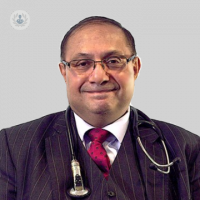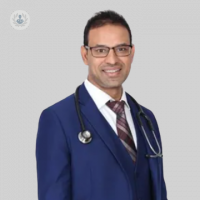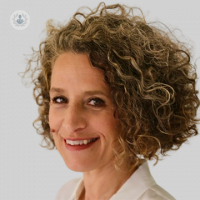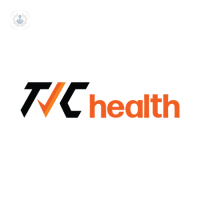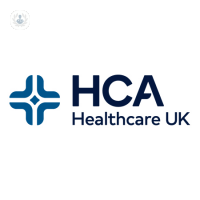What is preventive medicine?
Preventive medicine is a combination of medical practices that are designed to avoid disease and illness. It is a proactive approach to patient care. Doctors use preventative measures to ensure that any sickness is minimised and detected early so that a patient has the best chance of recovery to optimum health. Rather than treating conditions once they arise, preventive medicine means getting ahead of the potential problems by promoting healthy behaviours and screening for diseases to keep people from becoming sick in the first place.
Who practices preventive medicine?
Licensed medical doctors (MD) or doctors of osteopathy (DO) practice preventive medicine.

What are the preventive services?
There are many methods for prevention of disease. It is recommended that children and adults visit their doctor regularly for check-ups even if they feel healthy. This is so that the doctor can perform disease screening, identify risk factors for disease, and discuss a plan for a healthy and balanced lifestyle and be up to date with vaccinations. The following services are available under preventive medicine:
- Blood pressure, diabetes and cholesterol tests
- Cancer screenings
- Counselling for depression
- Sexually transmitted infections
- Routine vaccinations against diseases such as measles or meningitis
- Counselling, screening and vaccines for healthy pregnancies
- Flu shots
Why is preventive medicine important?
Preventive medicine can detect pre or early stages of chronic diseases, such as diabetes or heart disease. Screening and detection are critical alongside healthy habits, which include eating well, exercising and no tobacco use.
What are the commonest diseases screened for in preventive medicine?
Some common screenings include checking for:
• Hypertension
• High blood sugar (a risk factor for diabetes)
• High blood cholesterol
• Screening for colon cancer
• Depression
• HIV and other common types of STIs
• Mammography (to check for breast cancer)
• A Pap test (to check for cervical cancer)
• Screening for osteoporosis
Who benefits from preventive medicine?
Preventive medicine can be beneficial for everyone. However, the benefits are different depending on the individual person and their age. Before the age of 40, information and a close link with one dedicated doctor is very important. Between the ages of 40 and 70, chronic disease is at the highest risk.
01-15-2014 01-12-2024Preventive medicine
Dr Mashkur Khan - Internal medicine
Created on: 01-15-2014
Updated on: 01-12-2024
Edited by: Conor Dunworth
What is preventive medicine?
Preventive medicine is a combination of medical practices that are designed to avoid disease and illness. It is a proactive approach to patient care. Doctors use preventative measures to ensure that any sickness is minimised and detected early so that a patient has the best chance of recovery to optimum health. Rather than treating conditions once they arise, preventive medicine means getting ahead of the potential problems by promoting healthy behaviours and screening for diseases to keep people from becoming sick in the first place.
Who practices preventive medicine?
Licensed medical doctors (MD) or doctors of osteopathy (DO) practice preventive medicine.

What are the preventive services?
There are many methods for prevention of disease. It is recommended that children and adults visit their doctor regularly for check-ups even if they feel healthy. This is so that the doctor can perform disease screening, identify risk factors for disease, and discuss a plan for a healthy and balanced lifestyle and be up to date with vaccinations. The following services are available under preventive medicine:
- Blood pressure, diabetes and cholesterol tests
- Cancer screenings
- Counselling for depression
- Sexually transmitted infections
- Routine vaccinations against diseases such as measles or meningitis
- Counselling, screening and vaccines for healthy pregnancies
- Flu shots
Why is preventive medicine important?
Preventive medicine can detect pre or early stages of chronic diseases, such as diabetes or heart disease. Screening and detection are critical alongside healthy habits, which include eating well, exercising and no tobacco use.
What are the commonest diseases screened for in preventive medicine?
Some common screenings include checking for:
• Hypertension
• High blood sugar (a risk factor for diabetes)
• High blood cholesterol
• Screening for colon cancer
• Depression
• HIV and other common types of STIs
• Mammography (to check for breast cancer)
• A Pap test (to check for cervical cancer)
• Screening for osteoporosis
Who benefits from preventive medicine?
Preventive medicine can be beneficial for everyone. However, the benefits are different depending on the individual person and their age. Before the age of 40, information and a close link with one dedicated doctor is very important. Between the ages of 40 and 70, chronic disease is at the highest risk.


Why are health checks and preventive medicine important?
By Dr Lowri Bailey
2025-01-17
Maintaining optimal health and preventing illness is a priority for many, and health checks combined with preventive medicine are essential in achieving this goal. These practices not only aid in the early detection of potential health issues but also empower individuals to take proactive steps to maintain their wellbeing. See more
Experts in Preventive medicine
-
Dr Mohamed Khan
GP (general practitioner)Expert in:
- Preventive medicine
- Chronic diseases
- Health check up (health screening)
- Men's health check
- Well-woman screening
- Headache
-
Dr Vanessa Eisman
GP (general practitioner)Expert in:
- Health check up (health screening)
- Women's health
- Paediatrics
- Child development
- Mental health assessment
- Preventive medicine
-
Dr Federica Boecklin
Healthcare professionalsExpert in:
- Integrative medicine
- Homeopathy
- Acupuncture
- Stress
- Pain treatment
- Preventive medicine
-
Dr David Myers
GP (general practitioner)Expert in:
- Geriatric medicine
- Paediatrics
- Women's health
- Men's health check
- Preventive medicine
- Health check up (health screening)
-
Dr Kyriaki Sonidou
GP (general practitioner)Expert in:
- Health check up (health screening)
- Thyroid disorders
- Hypertension (high blood pressure)
- Preventive medicine
- Acne
- Anti-ageing treatments
- See all

ARKangel Hospitals
ARKangel Hospitals
42 Wimpole St, Marylebone, London, W1G 8YF
No existe teléfono en el centro.
By using the telephone number provided by TOP DOCTORS, you automatically agree to let us use your phone number for statistical and commercial purposes. For further information, read our Privacy Policy
Top Doctors

TIC Health Harley Street
TIC Health Harley Street
112 Harley Street
No existe teléfono en el centro.
By using the telephone number provided by TOP DOCTORS, you automatically agree to let us use your phone number for statistical and commercial purposes. For further information, read our Privacy Policy
Top Doctors

The Wellington Hospital - part of HCA Healthcare
The Wellington Hospital - part of HCA Healthcare
Wellington Hospital South Bldg, 8A Wellington Pl, NW8 9LE
No existe teléfono en el centro.
By using the telephone number provided by TOP DOCTORS, you automatically agree to let us use your phone number for statistical and commercial purposes. For further information, read our Privacy Policy
Top Doctors
-
ARKangel Hospitals
42 Wimpole St, Marylebone, London, W1G 8YF, W1G Marylebone LondonExpert in:
- Dermatology
- Child development
- Diagnostics
- Chronic diseases
- Obstetrics and Gynaecology
- Women’s health
-
TIC Health Harley Street
112 Harley Street, Central LondonExpert in:
- Preventive cardiology
- Diagnostic Imaging
- Physiotherapy
- General practice
- GP (general practitioner)
- Osteopathy
-
The Wellington Hospital - part of HCA Healthcare
Wellington Hospital South Bldg, 8A Wellington Pl, NW8 9LE, Central LondonExpert in:
- Digestive
- Cardiology
- Orthopaedic surgery
- Orthopaedic spinal surgery
- Intensive care
- Spine
- See all
- Most viewed diseases, medical tests, and treatments
- Narcolepsy
- Snoring
- Polysomnography (sleep study)
- Alzheimer's disease
- Cluster headaches
- Tension headache
- Chronic headache
- Visual impairment
- Diabetic retinopathy
- Retina
